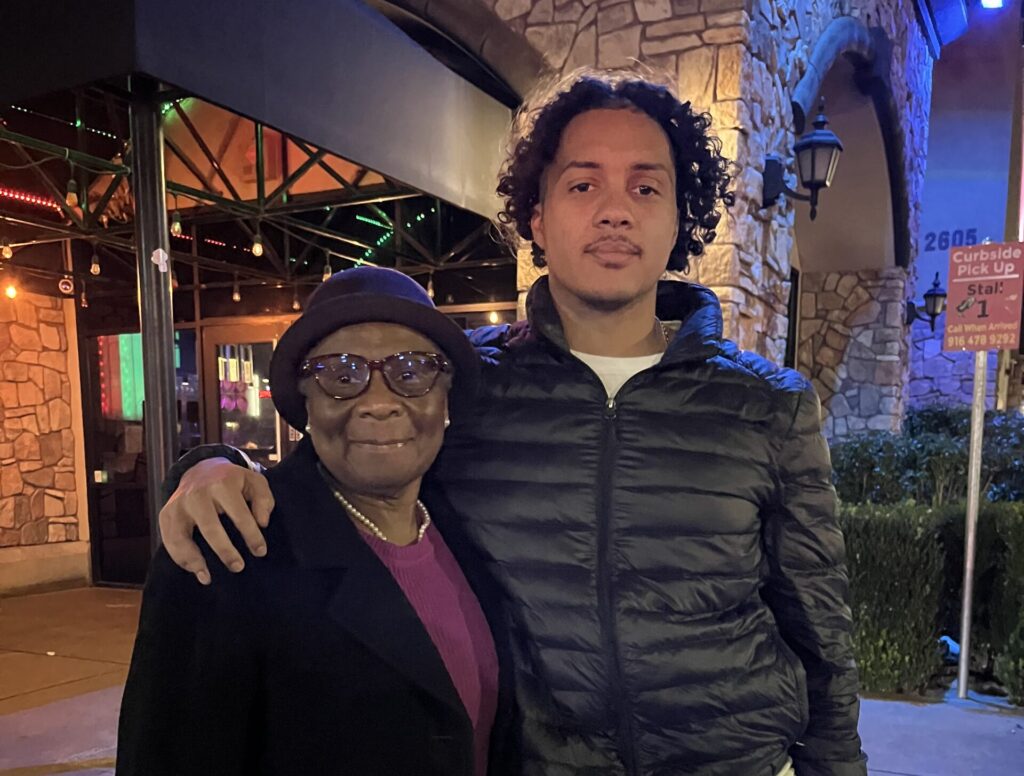Google the birthplace of the civil rights movement and you get Montgomery. Alabama. One of the strongest and proudest movements in American history sprouted from the strife and economic and racial struggle in the city. From that same soil, in that same time period, came Lillian Henderson, my grandmother.
Like the city she grew up in, Lillian came from modest beginnings. The daughter of a wife’s- helper, her home was four people in a one-bedroom “shack,” as she called it, with no indoor plumbing. The bathroom was an outhouse, and dishes were washed in the same tub they bathed in.
She lived with her grandmother until she was 10 years old, and while many would view the living conditions as less than ideal, it was never a lack of material belongings that bothered her. It was the emotional void in her life, especially from her grandmother—particularly considering how Lillian’s sister Mamie was treated—that stood out for the young woman beginning her journey.
“I never really felt loved by my grandmother,” Lillian said. “I always felt that (Her mother’s) love was beyond the world. She absolutely loved me. I think my mother, even though she never said this, also felt that my grandmother did not love me. Never was she mean to me, but she treated me differently.”
There’s a famous quote from Emily Dickinson (1836-1886) that applies here.
“That love is all there is, Is all we know of love”
That’s how Lillian lived her life. From a young age, she strived for love from her grandmother. At that same time, black people all around Montgomery and the entire South simply wanted basic love and equal rights. It’s been a contact battle for both.
Despite everything the well-known rampant racial tensions in the region, it never permeated Lillian’s young life.
Well, it did. But that’s just the way it was, she never really noticed. She had a more appreciative view of life.
“I can’t remember life being hard for me,” Lillian said. “Life was not necessarily hard, because that’s all we knew. We were lucky enough, when I was in high school, to be able to dress nicely and to be able to go to school. So many of my sisters and my friends or people that we had grown up with younger were not able to go to school. They had to go and pick cotton.”
Even as she literally worked in the house of the movement’s most prominent leader Dr.Martin Luther King Jr., in high school, she was always partially removed.
“Dr. King did not have too much involvement in the young babysitters, but Mrs. Coretta (King’s wife) did,” Lillian said. “I did some babysitting for Dr.King and Mrs. Coretta’s oldest daughter, who passed away several years ago. We called her Yoki Bat”
At 17, Lillian moved from Alabama to New York and joined the NAACP as a clip typist and assistant secretary. Once joining the organization stationed in Harlem the fire for change was ignited within her. Like those who came before her in her hometown, she was joining the struggle.
“I was still 19 years old,” Lillian said. “I was beginning to understand and feel that there was more to life for black people, especially young black women, than teaching school or being a maid in Montgomery, Alabama. I began to feel more powerful and have these extra freedoms that I had not experienced at that time.”
Even after years at the heart of one of the most transformative movements in our country’s history, which included multiple years in New York and then some time present back in Alabama, there was still something missing from Lillian’s life. As much as the world changed, the guiding force behind her life didn’t. Remember Emily Dickinson?
Love.
Love drove her to leave Alabama a second time in search of a husband with the intention of eventually creating a family that she could pass on more love than she felt growing up. At the suggestion of one of her friends, she booked a flight to Dallas Texas.
She didn’t stay long.
“When I got off the plane in Dallas,” she said. “I heard that accent in the airport, ‘yes, ma’am, no, ma’am,’ I felt no way in the hell am I going to live in this town. I never left the airport. I went back to Delta and asked ‘where is your next flight going out of Texas?’ And this woman said, ‘We have a flight in about two hours going to San Francisco.’ I paid the extra fair and I came to San Francisco. I did not know anybody. I did not know where I was going to stay. I got off the plane, got a bus to the city and I went to the YMCA in San Francisco. The next day, I got a temporary job.”
It was in San Francisco where she got a job as a typist and met her eventual husband Thomas Henderson, and a few years later, her son Jeffrey Henderson was brought into the world. It was her first chance to pass on that key component in her life.
“One of the things that I wanted him to know is that he was so wanted and so loved,” Lillian said.
There’s that L-word again.
As she raised her son—who she never fails to mention is the “light of her life”—she made sure he knew he was exactly that.
Loved.
However, even though she was able to provide a life with a more affectionate home than the one she grew up in, it wasn’t until she got the call that she was going to be a grandmother (my grandmama, as she always wanted me to call her) that the opportunity to fulfill what she felt her purpose was presented itself.
“Shortly after you were born, I decided to retire,” Lillian said. “I wanted to be the best grandmama I could be. I wanted to be the type of grandmama I always wished I had.”
The chance to raise her grandkids with more love than hers did with her means everything to her. Growing up, my grandmother would make the 142-mile round trip to Sacramento from her home in El Cerrito, California, multiple times a week to see her grandchild. She’d make sure she was in Sacramento by 6:45 a.m. so my mother could leave for work.
It was a lot, but it didn’t matter. She was going to make sure I knew—and eventually, my sister knew—that we were loved. That was her mission. A desire to be loved and pass on love for everyone drove the civil rights movement. A desire to be loved and pass that on to her grandchildren, in ways she didn’t get growing up, was what Lillian Henderson lived for. It’s who she was as a person, above everything else.
Yes, there was a desire to live a more financially fruitful life than the one she was born into. Yes, there was a desire to get away from the Southern drawl that filled the air of her hometown in Montgomery. However, above all, it was one thing she chased for her now over 80 years of living.
Love.
“I always felt that if ever I were blessed to have grandchildren or a grandchild, I wanted to be the grandmother that I wish that I had,” Lillian said. “I always give your mother so much gratitude that she allowed me, along with your dad, to be the grandmother that I wanted to be and the only grandmother I knew how to be.”


